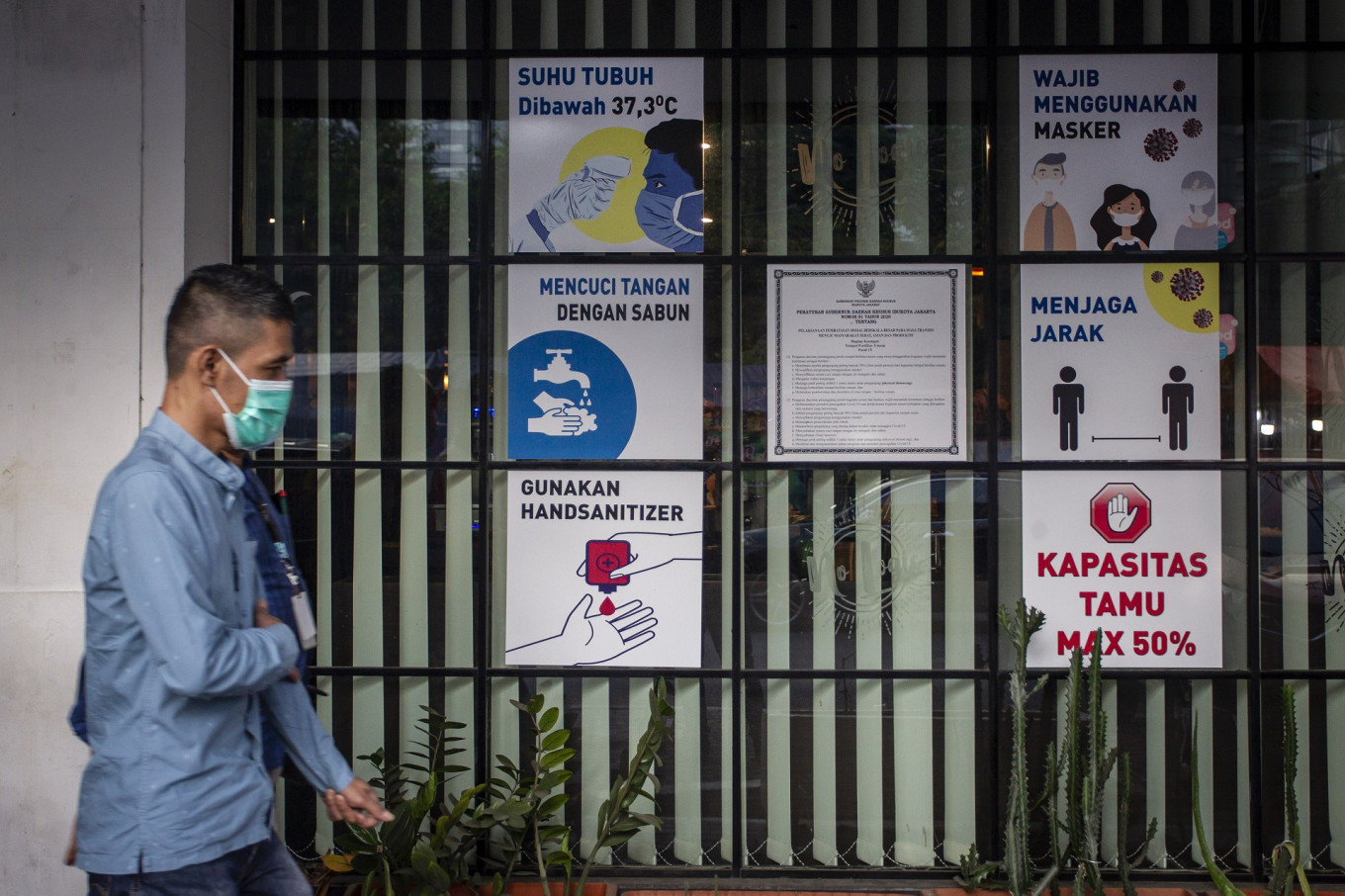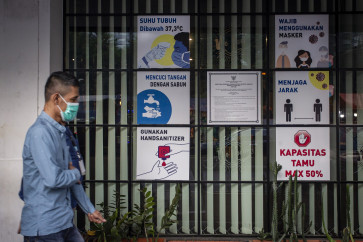Popular Reads
Top Results
Can't find what you're looking for?
View all search resultsPopular Reads
Top Results
Can't find what you're looking for?
View all search resultsGap persists between new COVID-19 policy and reality in Jakarta neighborhoods
Change text size
Gift Premium Articles
to Anyone
 A pedestrian walks past a restaurant on Jl. Sabang in Central Jakarta on Jan. 8. The government has instructed regional administrations throughout Java and Bali to impose micro-scale public activity restrictions (PPKM Mikro) from Feb. 9 to 22 to curb COVID-19 transmission at the local level. (Antara/Dhemas Reviyanto)
A pedestrian walks past a restaurant on Jl. Sabang in Central Jakarta on Jan. 8. The government has instructed regional administrations throughout Java and Bali to impose micro-scale public activity restrictions (PPKM Mikro) from Feb. 9 to 22 to curb COVID-19 transmission at the local level. (Antara/Dhemas Reviyanto)
J
akarta faces a gap between the government's newest activity restrictions and reality on the ground, with many neighborhood authorities are already trying their best under less-than-ideal circumstances and lacking information and resources since the beginning of the pandemic.
The more targeted curbs, effective from Feb. 9 to 22, introduced last week as micro-scale public activity restrictions (PPKM Mikro), require neighborhood units (RTs) and community units (RWs) – the lowest levels of city administration – to enforce restrictions that best suit their level of risk. The higher the risk of transmission, determined regularly by the COVID-19 task force in each city or regency, the tighter the restrictions to be enforced by RTs or RWs.
In RTs with the highest transmission risk, where COVID-19 cases have been found in at least 10 households over seven days, neighborhood officials must close public areas and houses of worship, ban residents from gathering in groups of more than three people and order an 8 p.m. curfew. RTs in Jakarta commonly have 80 to 130 households.
In neighborhoods with no confirmed cases, local officials are only required to perform COVID-19 surveillance and help facilitate testing for suspected cases.
This, along with contact tracing and monitoring of self-isolating residents -- either suspected or confirmed cases -- applies universally to all RTs and RWs regardless of their levels of risk. They must work together with community health centers (Puskesmas), Jakarta authorities, the police, the military, local figures and volunteers.
RW heads have expressed confusion over how they should enforce new restrictions, according to Jakarta RT/RW Forum secretary-general Andi Pane, who said that the government had never discussed with neighborhood authorities hurdles they were facing in imposing curbs long before the new policy was put in place.
Read also: Neighborhood authorities help curb COVID-19 spread

















